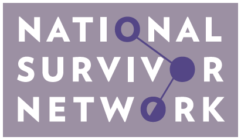April 14, 2023
Argento E., Goldenberg S., Braschel M., Machat S., Strathdee S.A., Shannon K., The Impact of End-Demand Legislation on Sex Workers’ Access to Health and Sex Worker-Led Services: A Community-Based Prospective Cohort Study in Canada, PLoS ONE 15(4): e0225783. (2020). Available at: https://doi.org/10.1371/journal.pone.0225783
Findings from Advocating Opportunity’s “END DEMAND LITERATURE – DESK REVIEW” (Compiled by: Emily Dunlap, Komal Hans, and Donna Hoffman with contributions from: Kate D’Adamo and Megan K. Mattimoe):
Summary:
“Sex workers experienced significantly reduced access to critical health and sex worker/ community-led services following implementation of the new laws. Findings suggest end demand laws may exacerbate and reproduce harms of previous criminalized approaches to sex work in Canada. This study is one of the first globally to evaluate the impact of end demand approaches to sex work. There is a critical evidence-based need to move away from criminalization of sex work worldwide to ensure full labor and human rights for sex workers. Findings warn against adopting end-demand approaches in other cities or jurisdictions.” (pp. 1-2) (emphasis added).
Findings:
“Of a total 854 participants who completed the baseline questionnaire, 14% reported not having access to health services when needed at baseline and 29% reported not having access at some point during the study. At baseline, 59% reported using a sex worker/community-led health service (70%, used these services at some point during the study period). Of a total 683 participants who reported ever experiencing physical and/or sexual violence and/or trauma, 11% reported experiencing barriers to accessing counseling support for violence/trauma at baseline and 31% experienced barriers at some point during the study period.” (pp. 4-5).
“Despite one of the explicit goals of end-demand criminalization approaches being to increase access to services and supports for sex workers, this study found no statistically significant increase in access to health or sex worker/community-led support services following implementation of the PCEPA in Vancouver, Canada. Rather, findings suggest that after implementation of the new laws, sex workers had reduced access to health and sex worker/community led supports.” (pp. 5-6) (emphasis added).
“Findings demonstrate no increase in access to health, violence, and sex worker-led support services post-PCEPA, and rather a reduction in odds of accessing sex worker/community-led supports and health services when needed. End-demand approaches to criminalize sex work may not only reproduce the harms of previous criminalized approaches to sex work in Canada, but may further exacerbate barriers to accessing health and community-led services that have been proven to be key contributors of better health outcomes. There is a critical evidence based need to move away from criminalized approaches to sex work to ensure full labor and human rights for sex workers, including access to health, social, and legal support services. Findings warn against adopting end-demand approaches in other cities or jurisdictions.” (p. 8) (emphasis added).
Methodology:
“Longitudinal data were drawn from a community-based cohort of ~900 cis and trans women sex workers in Vancouver, Canada. Multivariable logistic regression examined the independent effect of the post-PCEPA period (2015–2017) versus the pre-PCEPA period (2010– 2013) on time-updated measures of sex workers’ access to health, violence supports, and sex worker/community-led services.” (p.1).
“The main outcomes of interest were time-updated variables for having access to health care when needed and sex worker/community-led services and supports in the last six months. Having access to health services when needed was defined as >75% of the time (responding ‘Usually (over 75% of the time)’ or ‘Always (100% of the time)’ to the question ‘How often can you get health care services when you need it?’). Utilization of sex worker/community-led services was defined as responding ‘yes’ to using any sex worker/community-led health or support services, including outreach programs. Access to counseling support for violence/trauma was also examined as an outcome variable among participants who had ever experienced any physical and/or sexual violence and/or lifetime trauma, defined as responding ‘yes’ to experiencing any barriers to counseling or therapy for sexual abuse or other trauma or violence.” (pp. 3-4).
Background:
“Global research and evidence demonstrate that criminal policies and punitive enforcement-based approaches to sex work continue to undermine the health and human rights of sex workers. Substantial evidence demonstrates that the criminalization of sex work perpetuates widespread forms of violence, stigma, and discrimination that prevent sex workers from seeking or accessing critical health and support services. In settings where sex work is criminalized, sex workers are at significantly elevated risk of HIV and other sexually transmitted infections (STIs) driven by social marginalization and increased exposure to workplace violence and abuse. The criminalized nature of sex work and related policing practices displace sex workers to more isolated and risker locations and reduce the ability of sex workers to work together or more formally organize due to fear of arrest and police harassment.” (p. 2).
“Existing data suggests that end demand criminalization that targets clients and third parties, but not sex workers, has been shown to reproduce the risks and harms associated with previous laws criminalizing sex work.” (p. 7).
